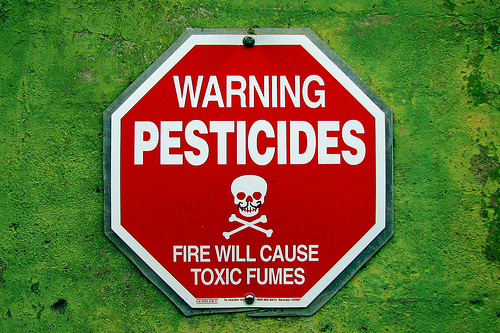Buying a knock-off Louis Vuitton bag is one thing, but in Europe, farmers are buying knock-off pesticides. Counterfeit pesticides have become a multimillion industry over there, and if that sounds like bad news, it is: According to the Wall Street Journal, these knock-offs contain a solvent that the European Union banned because it's a huge problem for pregnant women.
The WSJ's article also makes the E.U.'s efforts to deal with the problem sound like a giant clusterf*ck. There are loopholes in counterfeiting laws that mean customs can't seize the fake pesticides. The company that's been ripped off has to deal with the goods and try to recoup costs from counterfeiters, who are obviously the sort of people who'll say, "Whoops, you found me! Here are the millions of euros I made selling nasty, dangerous goods under your name!" (Or, as the WSJ puts it: "[P]ractically this can prove complicated and even impossible, as many of these companies are beyond EU jurisdiction or completely bogus.")
This stuff makes it into the food supply, too. In 2006, Spanish farmers used the pesticides, grew a bunch of vegetables, and shipped them out to the rest of Europe before anyone noticed something was amiss. And in Eastern Europe, 50 percent of all pesticides are counterfeit, and some farmers buy them on purpose:
Farmers who responded to a questionnaire from the European Business Association in Kiev on behalf of The Wall Street Journal said that half had bought counterfeit pesticides in the past — a fifth of them knowingly, because they are cheaper than the branded goods or because they didn't realize the risks. In 10%-20% of cases, farmers said they lost their entire crop because of the chemicals.


